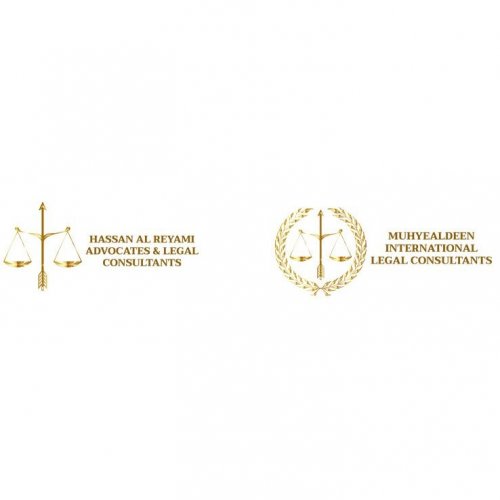Best Bankruptcy Lawyers in Abu Dhabi
Share your needs with us, get contacted by law firms.
Free. Takes 2 min.
List of the best lawyers in Abu Dhabi, United Arab Emirates

Saif Al Shamsi Advocates & Legal Consultants
30 minutes Free Consultation
The Black Robe For Legal Consultancy & Debit Collection
1 hour Free ConsultationUnited Arab Emirates Bankruptcy Legal Articles
Browse our 1 legal article about Bankruptcy in United Arab Emirates written by expert lawyers.
- Understanding the UAE's New Bankruptcy Law
- Table of ContentsIntroduction: Demystifying the New LawA Paradigm Shift in UAE Insolvency LawThe Core Objective of the New LegislationWho Does the New Law Apply To? Navigating JurisdictionsOnshore vs. Financial Free Zone ApplicabilityCommercial vs. Personal InsolvencyThe New Judicial FrameworkThe Specialized Bankruptcy CourtSupporting Administrative BodiesPathways to Rescue: Options for Debt ReliefThe Preventive... Read more →
About Bankruptcy Law in Abu Dhabi, United Arab Emirates
Bankruptcy law in Abu Dhabi, part of the United Arab Emirates (UAE), is governed by the Federal Law No. 9 of 2016 on Bankruptcy. This law applies to companies established under the UAE Companies Law, free zone companies excluding those governed by their specific laws, as well as trade licensed individuals or businesses. The bankruptcy law provides mechanisms such as financial restructuring, composition, and bankruptcy by court judgment.
Why You May Need a Lawyer
Bankruptcy proceedings can be complex. Whether you are considering filing for bankruptcy, or already amidst the process, you may require a lawyer to ensure you navigate the process lawfully and efficiently. Legal counsel may help in assessing financial situation, choosing the best applicable process, structuring payment plan in insolvency, and defending against involuntary bankruptcy filed by creditors.
Local Laws Overview
The UAE bankruptcy law primarily focuses on rescue and restructuring for businesses in financial distress, as opposed to termination. If a debtor fails to meet their financial obligations, they are directed to apply for insolvency to the court. If the business has not become insolvent and there are indicators for financial distress, preventive composition procedure can be initiated. The law also decriminalizes bounced cheques issued in the course of the bankruptcy process.
Frequently Asked Questions
1. What happens if I don't apply for insolvency while facing financial distress?
Failure to apply for insolvency in a timely manner can lead to imprisonment and fines as per the UAE law. It's important to seek help at the first signs of financial trouble to avoid penalties.
2. Does bankruptcy mean the end of my business?
Not necessarily. The bankruptcy law in UAE is designed to help businesses overcome financial difficulties and continue operations if possible through restructuring processes.
3. How will bankruptcy affect my credit?
Bankruptcy can negatively impact your credit score, making it harder to obtain loans or credit in the future. However, the specifics should be discussed with a knowledgeable legal advisor.
4. Can creditors force me into bankruptcy?
Yes, creditors can file for an involuntary bankruptcy case against you if they meet certain criteria established by law.
5. What is the role of the bankruptcy trustee?
The bankruptcy trustee, appointed by the court, plays a major role in insolvency proceedings. They are responsible for reviewing your assets and debts, handling related transactions, and representing the interests of the creditors.
Additional Resources
You can refer to the UAE Ministry of Finance or UAE Ministry of Justice for official details on bankruptcy laws and processes. The Insolvency Law for Individuals is accessible through the official UAE government portal. Local legal advisory services also provide specialized guidance.
Next Steps
If faced with financial distress or bankruptcy, it is recommended to seek legal counsel immediately. A qualified lawyer can help you understand your options and legal obligations, guide you through the process and represent you in court if required. It is crucial to act proactively, assess your financial situation and begin the legal process at the earliest to mitigate potential losses.
Lawzana helps you find the best lawyers and law firms in Abu Dhabi through a curated and pre-screened list of qualified legal professionals. Our platform offers rankings and detailed profiles of attorneys and law firms, allowing you to compare based on practice areas, including Bankruptcy, experience, and client feedback.
Each profile includes a description of the firm's areas of practice, client reviews, team members and partners, year of establishment, spoken languages, office locations, contact information, social media presence, and any published articles or resources. Most firms on our platform speak English and are experienced in both local and international legal matters.
Get a quote from top-rated law firms in Abu Dhabi, United Arab Emirates — quickly, securely, and without unnecessary hassle.
Disclaimer:
The information provided on this page is for general informational purposes only and does not constitute legal advice. While we strive to ensure the accuracy and relevance of the content, legal information may change over time, and interpretations of the law can vary. You should always consult with a qualified legal professional for advice specific to your situation.
We disclaim all liability for actions taken or not taken based on the content of this page. If you believe any information is incorrect or outdated, please contact us, and we will review and update it where appropriate.















